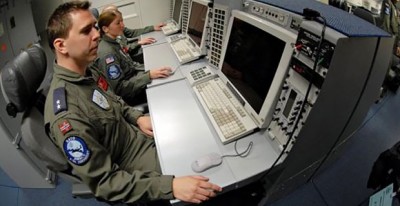NATO Declares Information War On Russia
NATO and StratCom information warfare includes “military steps”

The Supreme Commander of NATO, Gen. Philip Breedlove, said on Sunday the West must engage in an information war with Russia in order to counteract its “false narratives” on social media.
“We need as a western group of nations or as an alliance to engage in this informational warfare. The way to attack the false narrative is to drag the false narrative into the light and expose it,” Breedlove said.
In July, NATO announced a concerted effort to counter the Russian narrative on Ukraine. According to UK ambassador Adam Thomson, the response includes “military steps.”
“Nato needs to be able to pop the Russian myths that are propagated about Nato itself… it needs to be able to look after its own equity in this, if you like,” Thomson said during a NATO summit in September.
In July Latvia, Estonia, Germany, Italy Lithuania, Poland, and the UK signed a memorandum agreeing upon the establishment of a StratCom Centre of Excellence in Riga, Latvia.
StratCom is short for the United States Strategic Command. It is the combat command run by the Pentagon responsible for information warfare and other operations.
“The conflict between Russia and Ukraine clearly shows how important an information campaign can be in gaining the upper hand in a military conflict. Strategic communication is also becoming increasingly important in the context of NATO-led operations,” said said Latvian Minister of Defense Raimonds Vejonis during a visit to Norfolk, Virginia.
State Department Runs Social Media War Against Russia
The U.S. State Department is currently engaged in a social media propaganda war against Russia. For instance, on Twitter, the U.S. has established the Russian language UkrProgress account and claims 14,000 people follow it, most from the Russian Federation.
In June, Marie Harf, the deputy spokesperson for the State Department, tweeted about UkrProgress:
Huge thanks to the @UkrProgress team for facilitating Russian language twitter Q&A I just finished #UnitedforUkraine pic.twitter.com/yTt7u2gm52
— Marie Harf (@marieharf) June 11, 2014
The mission of UkrProgress is to counter what the United States considers Russian propaganda on the conflict in Ukraine.
“This account has criticized Russia’s actions in a much freer style than the official statements” issued by the U.S. State Department, writes the Russia & India Report. “For example, the photos of so-called ‘American mercenaries’ in Ukraine published by the Russian media have been labelled by UkrProgress as ‘a cheap trick by the Kremlin’. UkrProgress often retweets American diplomats and embassies around the world, including the U.S. embassy account in Moscow (which has 23,000 subscribers).”
There are a number of videos “on YouTube on Ukrainian-Russian subjects, filmed by order of the State Department,” the website continues.
Unmentioned by Breedlove is the fact the United States or its proxies in Ukraine have initiated DDOS (denial of service) cyber-attacks against the Russian Foreign Ministry website and social media channels. These attacks are in response to the growing popularity of Russia’s Twitter and Facebook accounts.
The German and Ukrainian government accuses Russia of similar behavior. In January the Ukrainian CyberBerkut hacker group claimed responsibility for a series of DDoS attacks that took down German government websites after the announcement of a meeting between German chancellor Angela Merkel and Ukrainian prime minister Arseny Yatseniuk.
CyberBerkut specializes in attacks on NATO websites and U.S. private military companies.

